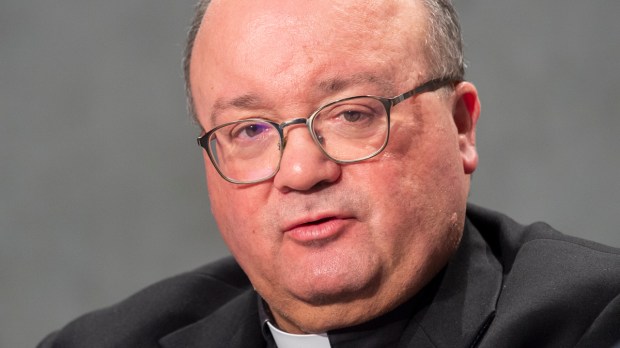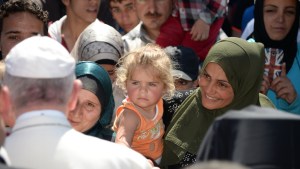Lenten Campaign 2025
This content is free of charge, as are all our articles.
Support us with a donation that is tax-deductible and enable us to continue to reach millions of readers.
During the Meeting of Bishops and Mayors of the Mediterranean on February 26, 2022, Archbishop Charles Scicluna of Malta briefly analyzed the upcoming trip of Pope Francis to Malta from April 2 to 3.
In particular, he emphasized the importance that the theme of migrants should have during this trip.
On April 2 and 3, Pope Francis will visit Malta and Gozo. As Archbishop of Malta, how do you welcome this visit?
Archbishop Scicluna: A visit of the Holy Father to the islands of Malta and Gozo is always a great moment, something that our people appreciate and are looking forward to. This visit is special because it was already announced in 2020 and had to be postponed because of the pandemic.
On the island of Gozo, the Holy Father will participate in a prayer vigil [on the evening of April 2, Ed.] and the next day he will celebrate the Eucharist on the island of Malta [at La Valette, Ed.]. During his trip, he will visit two “special” places. First, the grotto of St. Paul on the island of Gozo, which is the root and origin of our encounter with Jesus Christ. Later he will also meet with a group of migrants in Malta before returning to Rome.
Aren’t these two important moments connected?
Archbishop Scicluna: Yes, these two symbolic places are connected. The Acts of the Apostles speaks of the behavior of the Maltese, 2,000 years ago, towards the 276 people who were stranded on the island. They “showed unusual humanity,” the text says. One of the castaways was a prisoner named Paul. He brought his faith in Jesus Christ to this island, but also a blessing of healing.
Today, we too are invited to show the same generosity to those who find themselves in danger of drowning in the Mediterranean. We also need to think more about solidarity.
What kind of solidarity are you talking about?
Archbishop Scicluna: We certainly have the vocation to show solidarity to any person; this is what the law of the sea provides, which asks us to rescue those who are in danger of drowning. But we also need Europe’s solidarity in relocating people who come to our island. The Dublin II Regulation currently says that people must stay in their European country of arrival. But for Malta, such a small island, this is disproportionate to our resources and strengths.


